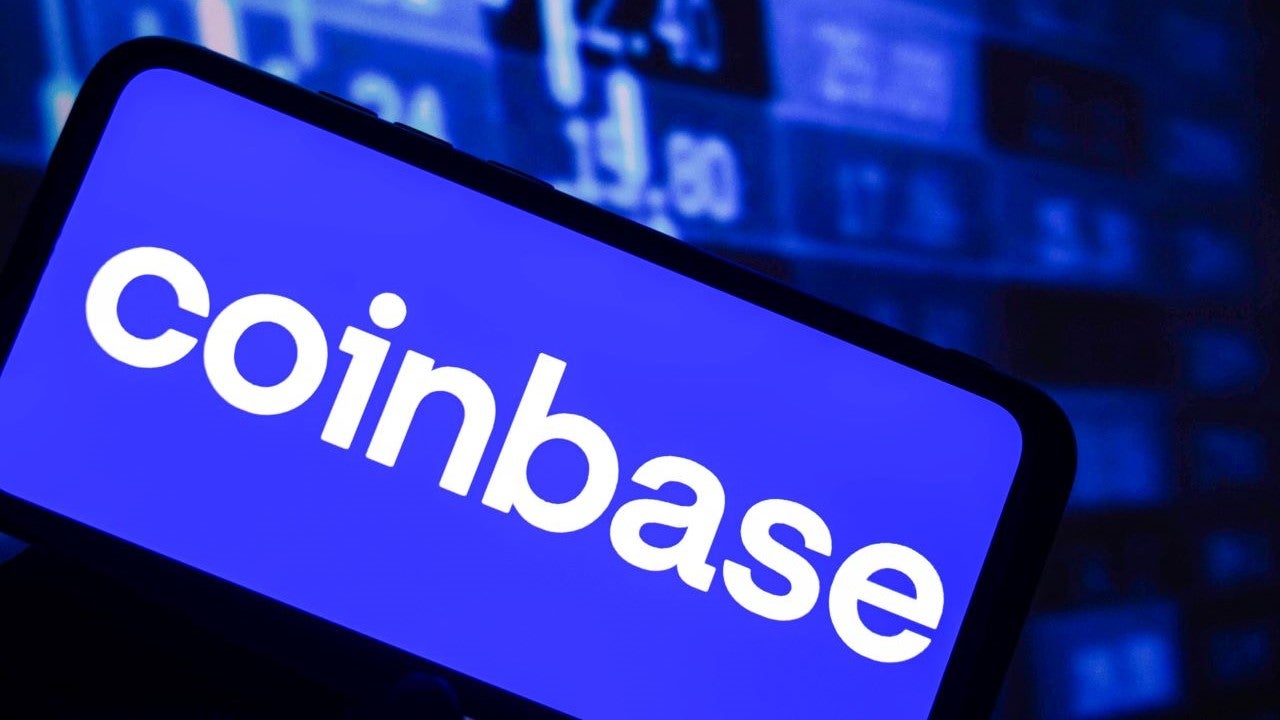Binance vs. Coinbase: Which crypto exchange is right for you?




Key takeaways
- Binance and Coinbase are closely matched, though Binance has the edge on advanced features for trading and lower fees.
- On the flip side, Coinbase supports more coins, an easy to use interface and easier access to help.
- The best choice depends on which features you prioritize.
Binance.US and Coinbase are two of the most popular cryptocurrency exchanges around, so which should you choose? The answer depends on what exactly you need, which crypto coins you want to trade, how much you’re willing to pay for commissions and other key factors.
We compared Binance.US — the American arm of the larger Binance organization — to Coinbase Advanced Trade, which offers much lower costs than the basic Coinbase service, though we’ll refer to it as Coinbase.
Here’s how Binance and Coinbase compare on some of the most important factors to traders.
Binance vs. Coinbase: Overall comparison
Before getting into the details, there’s a similarity worth noting. The SEC sued Coinbase and Binance in 2023 for allegedly operating illegally and offering unregistered securities, with additional accusations against Binance for misusing customer funds. Both companies maintain their platforms are secure and have continued operating. The SEC dropped the case against Coinbase in February. The Binance case is on hold.
| Feature | Binance.US | Coinbase |
|---|---|---|
| Cost | Fees start at 0.40 percent | Fees start at 0.40 percent |
| Supported cryptocurrencies | About 160 coins | 300 coins |
| Staking rewards | Staking on 21 coins | Staking on 130+ coins |
| Deposit and withdrawal fees | None for ACH; wire transfers are not supported | None for ACH; $10 for wire deposits and $25 for wire withdrawals |
| Customer support | 24/7 AI chatbot with human support 7 days a week, 6 a.m. to midnight ET; no phone support | 24/7 phone and chat support |
| Ease of use | Best for experienced traders | Best for beginners |
| Security | Advanced security measures, such as 2FA and cold wallet storage | Advanced security measures, such as 2FA and cold wallet storage |
Binance vs. Coinbase: Cost
Both Coinbase and Binance use a maker-taker pricing structure, charging based on whether you add liquidity to the market (makers) or remove liquidity from the market (takers). So trading fees generally differ not only on your volume but also the type of trade you make. However, Binance allows you to dodge the commissions on Bitcoin and Ethereum trades entirely.
Here’s how each exchange breaks down on its fees. Binance’s commission depends on which coin you’re trading: Bitcoin and Ethereum (Tier 0) or less popular coins (Tier 1).
Binance trading fees
The pricing structure below is for coins that are not Bitcoin and Ethereum.
| 30-day volume | Maker | Taker |
|---|---|---|
| Less than $10,000 | 0.40 percent | 0.60 percent |
| $10,000 – $50,000 | 0.25 percent | 0.40 percent |
| $50,000 – $100,000 | 0.15 percent | 0.25 percent |
| $100,000 – $1 million | 0.10 percent | 0.20 percent |
| $1 million – $20 million | 0.08 percent | 0.18 percent |
| $20 million – $100 million | 0.05 percent | 0.15 percent |
| $100 million – $300 million | 0.02 percent | 0.10 percent |
| $300 million – $500 million | 0 percent | 0.08 percent |
| $500 million and up | 0 percent | 0.05 percent |
Coinbase Advanced Trade trading fees
| 30-day volume | Maker | Taker |
|---|---|---|
| Less than $10,000 | 0.40 percent | 0.60 percent |
| $10,000 – $50,000 | 0.25 percent | 0.40 percent |
| $50,000 – $100,000 | 0.15 percent | 0.25 percent |
| $100,000 – $1 million | 0.10 percent | 0.20 percent |
| $1 million – $15 million | 0.08 percent | 0.18 percent |
| $15 million – $75 million | 0.06 percent | 0.16 percent |
| $75 million – $250 million | 0.03 percent | 0.12 percent |
| $250 million – $400 million | 0 percent | 0.08 percent |
| $400 million and up | 0 percent | 0.05 percent |
The results are neck and neck: For coins that aren’t Bitcoin or Ethereum, Binance and Coinbase have headline commissions that are nearly the same amount, with the exception of a few “pockets” in the pricing structure. For 30-day volume up to $15 million, you’re paying the same headline rate. But there’s a wrinkle: Binance will cut your fees a further 25 percent if you use BNB, its own in-house coin, to pay for trading fees.
For example, imagine you’ve placed $25,000 in trades in the prior 30 days and you want to place another $10,000 trade. At Coinbase you’d pay 0.25 or 0.40 percent as a maker or taker, respectively, for a total cost of $25 or $40. In comparison, you’d pay the same amount at Binance for that trade, unless you paid with BNB, cutting the fees to $18.75 and $30, respectively.
Advantage: Binance offers a clear advantage on what’s likely to be the largest group of ongoing fees you’ll pay. In addition to this little extra discount, Binance allows you to trade the two biggest-volume coins for free: Bitcoin and Ethereum. Given their predominance for traders, it seems like Binance would be the clear choice.
Binance vs. Coinbase: Supported cryptocurrencies
The straight numbers look to be in Coinbase’s favor in terms of how many total kinds of coins are offered by each exchange. At last count, Coinbase gives traders access to about 300 coins, while Binance offers access to around 160 coins in the U.S.
But all that choice is like a buffet: If you don’t want to trade a specific coin, it doesn’t matter if it’s there or not. So how do these exchanges compare on the top 12 coins by market capitalization? A comparison there might tease out some differences. On that basis, Binance is slightly better, offering 10 of the top coins, compared to Coinbase’s nine. Both offer Bitcoin, of course, and the difference is that Binance offers BNB, the coin powering Binance’s own ecosystem.
Advantage: Coinbase gets the edge here.
Binance vs. Coinbase: Staking rewards
Staking rewards provide crypto owners a chance to receive income for supporting the token as part of the verification process. Typically, an exchange simply deposits your income, net of any fees, into your account. Coinbase and Binance take a commission on your rewards.
Coinbase allows staking on about 130 coins, including Ethereum, one of the largest coins, as well as Solana and Cardano. It also allows other rewards, via DeFi (not available in the U.S.), on a handful of other coins.
Binance supports staking on 21 coins, including Ethereum, Cardano and Solana.
As for how large those staking rewards are? Binance sometimes offers higher APY, and Coinbase is better in other cases. You must compare the coins you want to stake and see which offers a higher rate.
Advantage: Coinbase beats out Binance on the number of coins supported in its staking rewards program, but Binance offers higher rewards on some of the coins that they have in common. Naturally, for those who hold coins supported on one platform but not the other, a specific exchange may end up being better for them.
Binance vs. Coinbase: Deposit and withdrawal fees
Neither Coinbase nor Binance charges deposit or withdrawal fees for ACH deposits in U.S. dollars. On wire transfers, Coinbase charges $10 for wire deposits into its accounts and $25 for wire withdrawals. Binance doesn’t support wire transfers.
Advantage: Binance and Coinbase tie on ACH transfers but only Coinbase supports wire transfers, albeit for a fee.
Binance vs. Coinbase: Customer support
Customer support at crypto exchanges seems to be mostly an afterthought, though it has improved over the last year. Coinbase has grown its efforts in recent years, adding 24/7 phone and chat support, much-needed features to prior options that included only email and a support ticket. Plus, if you see suspicious activity, you can call customer support to lock your account (though it raises the question of why this feature is needed, when traditional stock brokers seem to have no such issues.)
Binance has an AI-powered chat platform, available 24/7. However, you can also get help from a human seven days a week from 6 a.m. to midnight Eastern.
Advantage: With a variety of support options, Coinbase looks like the clear winner here.
Binance vs. Coinbase: Ease of use
As two of the largest crypto trading platforms, Binance and Coinbase are relatively easy to use. However, Coinbase makes ease of use its focal point, offering a clean and intuitive interface. You can see your balance and prices of popular coins from the dashboard. In addition, you can quickly place buy or sell orders and toggle light and dark mode.
Binance is a bit more complex and geared toward more experienced crypto traders. The interface isn’t as simple, and you’ll find advanced features on the platform. Binance does offer a Lite feature that strips down the app to its most basic features for beginners.
Users with more in-depth knowledge of crypto trading may prefer Binance, but newer crypto traders and investors may find Coinbase more approachable.
Advantage: Coinbase’s intuitive and clean interface gives it a win for ease of use.
Binance vs. Coinbase: Security
Whether you use Binance or Coinbase, both platforms go to great lengths to protect you. For instance, both use cold storage for most assets, meaning your funds are held offline. This reduces the threat from cyber attacks. Binance and Coinbase also both:
- Use advanced encryption to secure your data.
- Support two-factor authentication (2FA), security keys and whitelisting.
- Hold assets 1:1, so funds are available and aren’t traded or loaned.
- Keep cash deposits in FDIC- or NCUSIF-insured accounts.
In addition, Binance maintains a Safe Asset Fund for Users (SAFU), which it uses to back up user deposits in case of a security incident. The value of the fund is over $1 billion.
Advantage: Both platforms support advanced security measures with some nuances. It really comes down to which specific features matter to you.
Should you choose Coinbase or Binance?
The choice between Coinbase and Binance can be challenging, as both have advantages and disadvantages.
Coinbase may be right for you if:
- Customer support is important to you.
- You’re new to crypto investing.
- You want access to more coins.
Binance may be right for you if:
- You want the lowest possible fees.
- You’re an experienced trader.
- You want access to more advanced features.
Bottom line
On what’s probably the single most important feature of an exchange — cost — Binance gets the win. However, on the finer details, such as available coins, Coinbase wins outright or has a small advantage. In a comparison of Coinbase to Binance then, the true winner may be the exchange that fits your needs best — whether that’s low trading fees, widest selection or better support.
Why we ask for feedback Your feedback helps us improve our content and services. It takes less than a minute to complete.
Your responses are anonymous and will only be used for improving our website.





